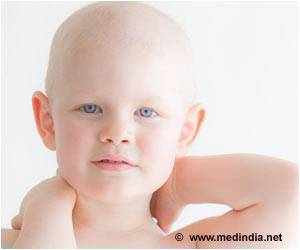- Stem cell transplantation is an effective treatment for leukemia and other blood cancers, but its success rates vary from one individual to another.
- The success rates of stem cell transplants depends on the genetic make up of the proteins inherited.
- The proteins inherited, play an important role in deciding the activity of the immune system, either by increasing or reducing the killing of the damaged cells by the immune system.
The study focuses on a protein called ULBP6. This protein helps in the removal of damaged cells.
Proteins are made up of organic compounds called amino acids.
Proteins do most of the work in cells and are required for the structure, function, and regulation of the body's tissues and organs.
It plays an important role in:
- breaking down food
- growth and repair of body tissue
- Performance of many other body functions
ULBP6 Protein
The ULBP6 protein is found on the surface of damaged cells, including several types of cancer cells.In the study, the research team found that there are two major types of the protein that is inherited. People inheriting a certain subtype have shown poor outcome after stem cell transplantation therapy.
Proteins are made up of many smaller units called amino acids that are attached to one another in long chains. There are a total of 180 amino acids in the body.
The discovery shows that the two subtypes of the ULBP6 differ only by two amino acids.
Professor Ben Willcox, also from the University of Birmingham's Institute of Immunology and Immunotherapy, said "It has surprised us that this can have such an important influence on patient outcomes."
Strong Bond with Receptor
The study showed that one form of ULBP6 forms a very strong bond with its receptor NKG2D on the immune system. This form also termed as the 'sticky' form binds 10 times more strongly with its receptor.But the strong bond reduces the killing of the damaged cells by the immune system, rather than increasing it.
"In addition, when the protein is released into the local environment it can act to block the signaling pathway." Willcox added.
This information could be used to improve the outcome for patients undergoing stem cell transplantation.
Conclusion
Alasdair Rankin, Director of Research at Bloodwise, said "For some people with leukemia and other types of blood cancer, stem cell transplantation can mean the difference between life and death. But a stem cell transplant is a grueling procedure which sadly does not always work, so we need research to improve success rates."Though the findings will not help to change the type of care, it may help us understand why transplants work less well in some people. This knowledge is important for developing better transplant therapy for more people suffering from blood cancer.
The study is published in Science Signaling.
References:
- Amino acids - (https://medlineplus.gov/ency/article/002222.htm)
- Paul Moss et al. A disease-linked ULBP6 polymorphism inhibits NKG2D-mediated target cell killing by enhancing the stability of NKG2D-ligand binding. Science Signaling; (2017) DOI: 10.1126/scisignal.aai8904
















